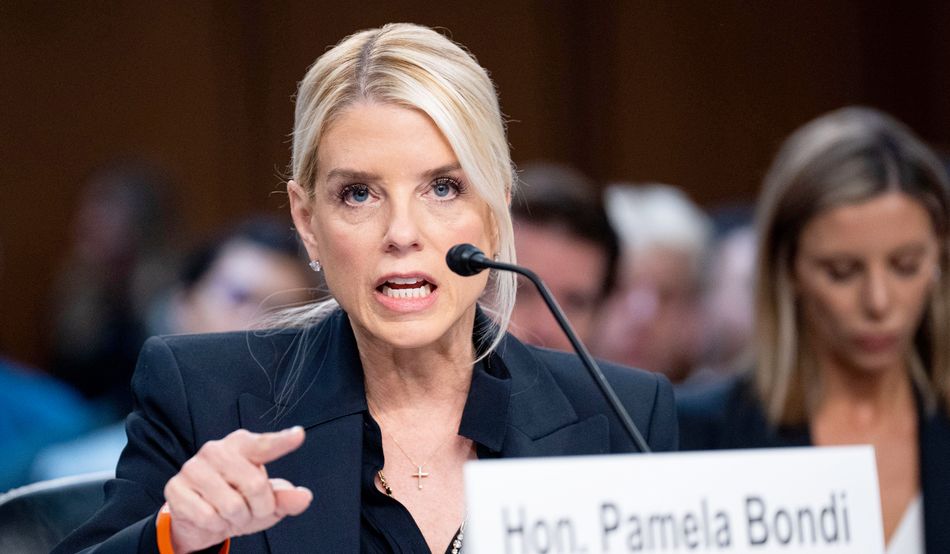Every generation has to find its own balance between politics and law. The realm of politics is about who has power and who does not. The realm of law is about one species of that power: the use of coercive force either to prohibit or mandate or punish or confer rights and privileges.
Those with power will, over time, tend to abuse law. And so one important feature of any polity is how those with power can be checked by others in the polity. Whenever somebody wants to do something untoward with their legal power there should be somebody who can say no they cannot. A constitution regulates who then prevails in this contest.
Over the past couple of centuries both in England and in the United States one example of how law and politics are balanced has been the office of attorney general. This is a political position, in that the attorney general is appointed by a politician and is often themselves a politician as well as a lawyer. The office holder is in turn accountable to the legislature.
Yet the position is also regarded as quasi-independent. As the government’s chief lawyer and, in effect, chief prosecutor, the holder of the office was supposed to make their own mind up on things. They were not merely a functionary carrying out the political will of the government. They could say to other ministers “yes” or “no” or, as is the wont of lawyers, “it depends”.
But what happens when an attorney general no longer wants to be quasi-independent but partisan? Or, a related question, what happens when a political culture changes and the quasi-independence of the office holder is seen as somehow undemocratic, frustrating the perceived will of the people?
In the United States we appear to have an example of a stridently partisan attorney general in Pamela Bondi. As Joyce White Vance insightfully put it, Donald Trump has finally found his new Roy Cohn. In a boisterous and evasive session this week before the Senate, it was plain that Bondi did not think much of congressional oversight, though as Jay Kuo wisely points out her refusal to answer certain direct questions may become increasingly politically and legally significant.
In England we seem to have a sustained assault upon the office of attorney general itself. The current office holder Richard Hermer is faced with constant media criticism about the role of independent legal advice within government, especially in respect of its compliance with international law. But the underlying issue pre-dates his term of office, as one of his predecessors wanted a more “solution”-orientated approach.
As a deepening dividing line develops in the politics of both the United Kingdom and the United States between those who want brute uninhibited executive power and those who think this may not be a good idea, the theory and practice of having an attorney general semi-detached from the government is an obvious point of conflict.
And how this issue is ultimately resolved will tell us about the general direction of political culture. If voters and political parties do not want the “rule of law” to be nothing more than an empty slogan, then the pressure will be for government lawyers and their advice to not be “obstructive” or “unhelpful”. If the demand is for politically motivated prosecutions, then the notion of an independent prosecutor will fall aside.
This is the crucial choice facing those both in the United Kingdom and the United States. What is to be the relationship between those with political power and the force of law?
In the United States it would seem that, at a federal level, both Congress and the Supreme Court are content to nod along with excessive use of presidential power. It is only the individual states themselves and the lower courts that are seeking to hold that executive power to account.
While in the United Kingdom there are louder political demands for the government to be free from the constraints placed by international law and supposedly activist judges. The implicit call is that ministers and officials should be able to do as they like to the rest of us without any possibility of a court ever saying otherwise.
What will happen in this contest between executive power and legal restraint cannot be predicted. The happy assumption of the Whig interpretation of history may not be well-grounded. From a liberal perspective things are not only getting worse, but could get a lot worse. The illiberals know what they are doing and they are doing it well.
Yet there is also a possibility that after this period of increasing executive power there could be an equal and opposite reaction: that there will be a nemesis to the illiberal hubris. Most people may want a balance and not an imbalance between politics and law, with the overall position not lopsided in either direction. And so the contest between power and restraint may not yet be over.













